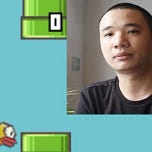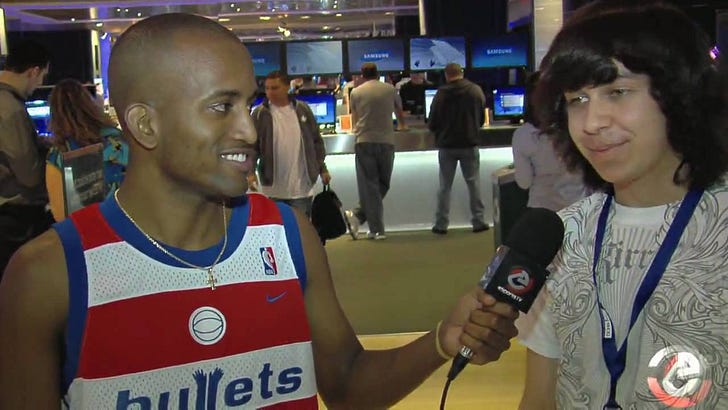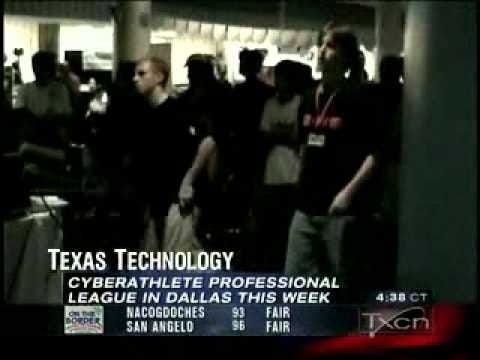This post is part of a longform project I’m serializing exclusively in my newsletter, Disruptor. It’s a follow-up to my first book, Masters of Doom: How Two Guys Built an Empire and Transformed Pop Culture, and it’s called Masters of Disruption: How the Gamer Generation Built the Future. You can find the table of contents, as it unfolds, here. To follow along, please subscribe below. Thanks!
This story of mine originally appeared in Rolling Stone as “Flight of the Birdman” on March 11, 2004.
Last April, Dong Nguyen, a quiet 28-year-old who lived with his parents in Hanoi, Vietnam, and had a day job programming location devices for taxis, spent a holiday weekend making a mobile game. He wanted it to be simple but challenging, in the spirit of the Nintendo games he grew up playing. The object was to fly a bug-eyed, big-lipped, bloated bird between a series of green vertical pipes. The quicker a player tapped the screen, the higher the bird would flap. He called it Flappy Bird.
The game went live on the iOS App Store on May 24th. Instead of charging for Flappy Bird, Nguyen made it available for free, and hoped to get a few hundred dollars a month from in-game ads.
But with about 25,000 new apps going online every month, Flappy Bird was lost in the mix and seemed like a bust – until, eight months later, something crazy happened. The game went viral. By February, it was topping the charts in more than 100 countries and had been downloaded more than 50 million times. Nguyen was earning an estimated $50,000 a day. Not even Mark Zuckerberg became rich so fast.
Yet as Flappymania peaked, Nguyen remained a mystery. Aside from the occasional tweet, he had little to say about his incredible story. He ducked the press and refused to be photographed. He was called a fraud, a con man and a thief. Bloggers accused him of stealing art from Nintendo. The popular gaming site Kotaku wrote in a widely clicked headline, FLAPPY BIRD IS MAKING $50,000 A DAY OFF RIPPED ART.
On February 9th, at 2:02 a.m. Hanoi time, a message appeared on Nguyen’s Twitter account. “I am sorry ‘Flappy Bird’ users,” it read. “22 hours from now, I will take ‘Flappy Bird’ down. I cannot take this anymore.” The message was retweeted more than 145,000 times by the disbelieving masses. How could someone who hit the online jackpot suddenly pull the plug? But when the clock struck midnight the next evening, the story came to an end. Nguyen, as promised, took Flappy Bird offline. In his wake, he left millions of jilted gamers, and one big question: Who was this dude, and WTF had he done?
Two weeks after the demise of Flappy, I’m taxiing past pagodas and motorbikes to the outskirts of Hanoi, a crowded, rundown metropolis filled with street vendors selling pirated goods, to meet with Nguyen, who has agreed to share with Rolling Stone his whole story for the first time. With the international press and local paparazzi searching for him, Nguyen has been in hiding – fleeing his parents’ house to stay at a friend’s apartment, where he now remains. Although dot-com millionaires have become familiar in the U.S., in Vietnam’s fledgling tech community they’re all but unheard of. When the country’s first celebrity geek, a boyish, slight guy in jeans and a gray sweater, walks hesitantly up and introduces himself, he measures his words and thoughts carefully, like placing pixels on a screen. “I was just making something fun to share with other people,” he says with the help of a translator. “I couldn’t predict the success of Flappy Bird.”
Growing up in Van Phuc, a village outside Hanoi famous for silk-making, Nguyen (pronounced nwin) never imagined being a world-famous game designer. Though his father owned a hardware store and his mother worked for the government, his family couldn’t afford Game Boys for him or his younger brother. But eventually, they were able to purchase a Nintendo, which, like most electronics in Vietnam, was available only in cloned form. Marveling at the power of controlling a character onscreen, Nguyen spent his free time obsessively playing Super Mario Bros.
By 16, Nguyen had learned to code his own computer chess game. Three years later, while studying computer science at a university in Hanoi, he placed in the top 20 of a programming competition and got an internship with one of Hanoi’s only game companies at the time, Punch Entertainment, which made cellphone games. Son Bui Truong, Nguyen’s former boss, says the young programmer stood out for his speed, skills and fierce independent streak. “Dong didn’t need a supervisor,” Truong says. “He wasn’t comfortable with it. So we said he did not have to report to anyone.”
Nguyen soon tired of churning out the company’s sports games. When he later got his hands on an iPhone, he became fascinated by the possibilities of the touch screen. Few games, however, captured the simple power of the Nintendo games of his youth. Angry Birds was too busy, he thought. “I don’t like the graphics,” he says. “It looked too crowded.” Nguyen wanted to make games for people like himself: busy, harried, always on the move. “I pictured how people play,” he says, as he taps his iPhone and reaches his other hand in the air. “One hand holding the train strap.” He’d make a game for them.
As we talk into the night, hordes of agile pedestrians deftly dodge the Hanoi traffic, screens flickering in their hands like fireflies. It’s no wonder the world’s hottest game came from here. “When you play game on a smartphone,” he says, with an ever-present cigarette dangling from his lip, “the simplest way is just tapping.”
Last April, Nguyen was tapping his iPhone at home while the rest of Hanoi was celebrating Reunification Day, the annual holiday marking the end of the Vietnam War. Instead of joining the throngs outside, he spent the weekend in his bedroom at his parents’ house creating a little game for fun, as a poster he’d drawn of Mario gazed down on him.
Nguyen had already made and released a mobile game, Shuriken Block, earlier that month. The object was to stop a cascade of ninja stars from impaling five little men on the screen. This seemed simple enough – the one-word instruction read TAP. Tap the falling star at the right moment, and it would bounce away. But Nguyen understood the mantra of game design that Nolan Bushnell, creator of Pong and founder of Atari, described as “easy to learn and difficult to master.” More recently, indie game makers had taken this to speed-metal extremes with the so-called masocore genre – games that are masochistically hard. Shuriken Block was deceptively ruthless. Even the nimblest player would have trouble lasting a minute before the men were spurting pixelated blood. Nguyen was pleased with the results, but the game languished in the iOS store.
For his new game, Nguyen realized a way to go even simpler: Let the player tap anywhere. All he needed was an idea to build it around. The year before, he’d drawn a pixelated bird on his computer that riffed on Nintendo fish, called Cheep Cheeps. He drew green pipes – a homage to Super Mario Bros. – that the bird would have to navigate. He modeled the game on one of the most masocore analog creations ever: paddleball. The toy was a simple design – just a wooden paddle with a string attached to a rubber ball. But players would be lucky to bounce the ball more than a few times in a row.
Like paddleball, he limited his game to just a couple of elements – the bird and the pipes – and resisted the usual urge to lard the action with new elements as the player progressed. He tuned the physics so that the bird was fighting gravity so strong, even the slightest wrong tap would kill it. Since the deaths would be so frequent, Nguyen wanted to make them entertaining. He tried having the bird explode in a bloody pulp, or bounce back across the ground, before settling on a faceplant. He then sifted through hundreds of sounds before settling on a kung-fu-style thwack to make the bird’s demise even funnier. (The first question he asks me about the game is if it made me laugh.) “The bird is flying along peacefully,” he says with a chuckle, “and all of a sudden you die!”
Before the last flag waved on Reunification Day, Nguyen had gone on Twitter and posted a screen shot of his “new simple game.” Other than a couple of tweets, Nguyen says he put no marketing behind the launch. And, like so many games released into the flood, Flappy Bird flopped. The first mention of the game on Twitter didn’t come until five months later, on November 4th, when someone posted a three-word review. “Fuck Flappy Bird,” it read.
Trying to divine why stuff goes viral is like trying to fly the bird: You end up ass-up on the ground. But “Fuck Flappy Bird” captured the essence of the appeal. The highly addictive Flappy Bird was like a snot-nosed kid paddleballing you in the face. It was begging to be spanked. And you couldn’t resist or stop playing.
By the end of December, players swarmed social media to commiserate, compete and bitch about breaking their phones in frustration. Twitter erupted with Flappy Bird testimonials, eventually hitting more than 16 million messages. One called it “the most annoying game yet I can’t stop,” and another said it was “slowly consuming my life.” As word spread from Reddit to YouTube, playgrounds to office parks, Flappy Bird rose to the Top 10 of the U.S. charts by early January. Finally, with no promotion, no plan, no logic, on January 17th, Flappy Bird hit Number One. A week or two later, it topped the Google Play store, too.
“Seeing the game on top, I felt amazing,” Nguyen recalls. Like everyone else, he was shocked by its meteoric rise – and the avalanche of money that would be wired into his bank account. Even with Apple and Google’s 30 percent take, Nguyen estimated he was clearing $50,000 a day. Before long, Shuriken Block and a new game he had submitted called Super Ball Juggling joined Flappy Bird in the Top 10. But other than buying a new Mac, and taking his buddies out for rice wine and chicken hot pot, Nguyen wasn’t much for indulging. “I couldn’t be too happy,” he says quietly. “I don’t know why.” Remarkably, he hadn’t yet even bothered to tell his parents, with whom he lived. “My parents don’t understand games,” he explains.
As news hit of how much money Nguyen was making, his face appeared in the Vietnamese papers and on TV, which was how his mom and dad first learned their son had made the game. The local paparazzi soon besieged his parents’ house, and he couldn’t go out unnoticed. While this might seem a small price to pay for such fame and fortune, for Nguyen the attention felt suffocating. “It is something I never want,” he tweeted. “Please give me peace.”
But the hardest thing of all, he says, was something else entirely. He hands me his iPhone so that I can scroll through some messages he’s saved. One is from a woman chastising him for “distracting the children of the world.” Another laments that “13 kids at my school broke their phones because of your game, and they still play it cause it’s addicting like crack.” Nguyen tells me of e-mails from workers who had lost their jobs, a mother who had stopped talking to her kids. “At first I thought they were just joking,” he says, “but I realize they really hurt themselves.” Nguyen – who says he botched tests in high school because he was playing too much Counter-Strike – genuinely took them to heart.
By early February, the weight of everything – the scrutiny, the relentless criticism and accusations – felt crushing. He couldn’t sleep, couldn’t focus, didn’t want to go outdoors. His parents, he says, “worried about my well-being.” His tweets became darker and more cryptic. “I can call ‘Flappy Bird’ is a success of mine,” read one. “But it also ruins my simple life. So now I hate it.” He realized there was one thing to do: Pull the game. After tweeting that he was taking it down, 10 million people downloaded it in 22 hours. Then he hit a button, and Flappy Bird disappeared. When I ask him why he did it, he answers with the same conviction that led him to create the game. “I’m master of my own fate,” he says. “Independent thinker.”
In the wake of Flappy Bird’s demise, rumors spread. Nguyen had committed suicide. Nintendo was suing him. He’d received death threats. His refusal to speak fueled the speculation even more. To fill the massive hole left by Flappy Bird, imitators rushed to cash in. By the time I visit, the top three free iPhone apps are Flappy rip-offs – Flappy Wings, Splashy Fish, even a game based on Miley Cyrus. As of this writing, a Drake game called Tiny Flying Drizzy is Number One at the App Store, and, according to a study, a new Flappy clone pops up every 24 minutes. “People can clone the app because of its simplicity,” Nguyen says, “but they will never make another Flappy Bird.” Indeed, for those who crave the real thing, phones with Flappy Bird installed have been listed for thousands on eBay.
But the absence has also spawned a reappraisal. Kotaku apologized for its allegations of plagiarism. John Romero, co-creator of the game Doom, says Flappy Bird is “a reaction against prevailing design the way grunge was a reaction to metal.” The godfather of gaming, Bushnell, compares it to his own hit, Pong. “Simple games are more satisfying,” he says.
As for Nguyen, the millions of people who downloaded Flappy Bird are still generating tens of thousands of dollars for him. He’s finally quit his job and says he’s thinking of buying a Mini Cooper and an apartment. He just got his first passport. For now, though, he’s busy doing what he loves most: making games. Over tea, he shows me the three he’s working on simultaneously: an untitled cowboy-themed shooter, a vertical flying game called Kitty Jetpack and an “action chess game,” as he puts it, called Checkonaut, one of which he’ll release this month. Each sports his now-familiar style: simple play, retro graphics and hardcore difficulty.
Since taking Flappy Bird down, he says he’s felt “relief. I can’t go back to my life before, but I’m good now.” As for the future of his flapper, he’s still turning down offers to purchase the game. Nguyen refuses to compromise his independence. But will Flappy Bird ever fly again? “I’m considering it,” Nguyen says. He’s not working on a new version, but if he ever releases one it will come with a “warning,” he says: “Please take a break.”












